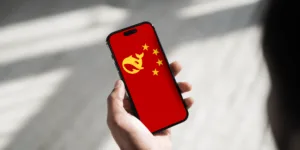Chinese media reports on the EU’s recently announced additional tariffs on Chinese electric vehicles (EVs) were largely aimed at amplifying anti-tariff narratives from China and Europe. These media reports dismissed European allegations of subsidies and overcapacity in China’s car industry as politically motivated falsehoods. They also touted China’s commitment to global green transition and criticized the EU for impeding these efforts with the newly announced tariffs. However, Chinese media ignored the questionable aspects of China’s compliance with green transition goals, such as its growing coal power capacity.
On June 12th, the European Commission (EC) announced additional tariffs on Chinese-produced EVs. As might be expected, this was not well-received in China. State officials decried the EU’s alleged protectionism as detrimental to global climate goals and dismissed the EC’s subsidy probes as politically motivated moves with pre-determined outcomes. Stakeholders in China’s car industry denied accusations of receiving state subsidies and claimed that they engage in fair competition with other carmakers worldwide. Chinese state-backed media and popular online bloggers echoed this sentiment while also quoting from some European stakeholders who opposed the tariff measures. This included statements from major European (mostly German) carmakers and comments made by Robert Habeck, Germany’s Minister for Economic Affairs, given during his June 2024 trip to Beijing (as noted below).
However, inconvenient aspects of China’s climate policy were generally overlooked. Chinese media did not mention, for instance, that China was responsible for 95% of new coal power construction in 2023, according to a report by Global Energy Monitor. Chinese media depicted Beijing as the champion of emerging Global South economies in the face of a frustrated West that is trying to maintain its hegemonic status in the world economy. Yet, they didn’t mention that that Brazil and Turkey are also in the process of imposing tariffs on Chinese EVs.
Officials Criticize EC’s Protectionism, Obstruction of Green Transition
China’s foreign affairs and commerce ministries and the National Reform and Development Commission responded harshly to the EC’s decision on EV tariffs. Their statements have been widely reproduced in state-owned media. According to state-owned Beijing Daily, Lin Jian 林剑, a spokesperson for the foreign affairs ministry, described the EU’s decision as “typical protectionist acts […], disregarding the rules of the WTO, going against the tide of history, causing harm to others and to oneself”. Lin called on the EC to “listen carefully to objective and rational voices of all sectors, immediately correct its wrong practices, stop politicizing economic and trade issues” and to resolve “trade frictions” via “dialogue and consultation”.
According to an article published on the website of China’s Ministry of Commerce, its spokesperson described the EC’s decision as “lacking factual and legal basis”, said the move possibly “violates WTO rules”, and condemned Brussels for “distorting the global automotive industry chain and supply chain”. The spokesperson noted that China reserves the right to file a lawsuit with the WTO against the EC’s decision. The article also included statements from Chinese EV makers, including Cherry, SAIC, and NIO, and from the China Association of Automobile Manufacturers CAAM, the latter of which accused the European anti-subsidy probe of being biased and delivering pre-determined results while claiming that CAAM fully contributed the required materials to the European investigators. CAAM referred to “40 years of excellent cooperation” between the Chinese and European car industries and claimed there is a “community of shared destiny” between the two sides, implying that the newly announced tariffs on Chinese EVs threaten to disrupt this.
The commerce ministry’s report also included the opinions and recommendations of several experts on the way forward for Chinese automakers after the EC’s tariff decision. Such experts include Bai Wenxi (柏文喜), vice chairman of the China Enterprise Capital Alliance, and Jiang Hao (瀚告), a senior researcher at the Beijing-based think tank Pangoal Institution (盘古智库). The experts discussed ways of investing more in R&D and supply chain resilience to make Chinese EV products even more cost-efficient and, thus, able to cope better with the tariffs imposed by foreign states. They also emphasized China’s advantages in moving toward the production of networked “smart EVs”, as well as the need to strengthen brand building and market promotion worldwide.
The National Development and Reform Commission, a department of China’s State Council/Central People’s Government, also reacted via an article on its website, which argued that one cannot “uphold the banner of green development” at the same time while obstructing green transition with protectionist measures. The article contrasted the EU’s alleged protectionism with China’s supposed unwavering commitment to advance the cause of low-carbon, green development globally. The EU, it added, is losing global competitiveness due to high energy prices—a reference to the impact of sanctions on Russia—and tariffs on cost-effective Chinese EVs will only add to the EU’s economic difficulties.
An article published by the state-owned People’s Daily Online summarized the statements of the chairman of the National Development and Reform Commission, Zheng Shanjie (郑栅洁), during his June 2024 meeting with Robert Habeck, Germany’s Federal Minister for Economic Affairs. Zheng’s statements sought to discredit notions of unfair trade practices in China’s automobile industry. He argued that the development of “new energy industries” in China is based on “comprehensive advantages of technology, market, industry chain”. Claims of “unfair competition” are unfounded, he added, and insisted that China’s new energy industries have developed under tense global competition. To underline his claims, Zheng referred to data showing that “China’s new energy vehicle consumption stabilized at a high level” and that China’s EV industry mostly produces for domestic consumption, with only 12.5% of EVs exported abroad. Zheng also noted that the prices of Chinese EVs sold abroad are higher than those sold domestically. As an apparent counter-claim to accusations of “overcapacity”, he also noted that the global demand for EVs remains unfulfilled. Zheng concluded by forecasting that Germany will utilize its influence within the EU to correct the wrong course taken by the EC.
Online Reactions Between Nationalist Outrage and Expert Opinions
In a Weibo post liked by 2,483 users (as of May 28th, 2024), “Zhao Sheng, Prince of the Plains” (平原公子赵胜, hereafter Zhao Sheng), a self-described commentator of current social affairs with around 1,255,000 followers, argued that Europe’s main intention with the tariffs is to lure Chinese carmakers into joint ventures in Europe and make it possible for Europeans to overtake Chinese technology. According to him, when “[Europeans] can’t compete, they want to ‘seize’ it [China’s resources, technology]. Despite pretending to be gentlemen for a century, they still can’t change their inherent robber-like nature.” Zhao also asked rhetorically, “Isn’t this just like when they accused us of ‘forced technology transfer’ before?” In a devaluating tone, Zhao noted that Europeans cannot change the fact that the entire supply chain of EVs is dominated by China. Any attempts to produce EVs in Europe would thus involve opening markets for “Chinese energy, steel, and chemical giants to invest in Europe”.
Other popular posts in the Chinese online space include business expert commentaries with a more reserved tone. A commentary by financial analyst Xie Jiu published by Life Weekly (三联生活周刊)—a post with “more than 40,000 reads” on WeChat, as of June 26, 2024—discussed the issue of trade protectionism and overcapacity from a more diverse range of perspectives compared to state sources. Xie began with the rationale for Western countries to protect their own car industries, even though, in his view, tariffs of at least 50% would be needed in the EU to make Chinese EVs uncompetitive price-wise. Xie then pointed out that European carmakers are the ones who have to be especially worried about a potential trade war between China and the EU since any counter-tariff on European cars in China would make their market share in China rapidly decline. Xie also discussed the question of overcapacity of EV production in China by noting that Chinese EV makers need foreign markets to open up due to the Chinese market already being saturated.
Amplifying Anti-Tariff Voices From Europe
European voices, especially those of major German carmakers, that oppose the tariffs feature prominently in the Chinese discussions. Based on WeChat readership numbers, as of June 26, 2024, two of the most-read articles summarize the criticisms of the EC’s decision made by major German carmakers. The two articles were published by state-owned Global Times Online and a news portal titled Top News Express (国是直通车) which belongs to the state-owned China News Service/CNS. Statements from BMW, Mercedes-Benz, and Volkswagen were reproduced in the two articles. They offered critical attitudes toward trade tariffs in general, pointing to their market-distorting effects and the threat of a trade war between China and the EU.
A report by the news portal 21 Finance and Economics (21财经), which is owned by the state-owned Southern Finance Omnimedia Group (SFC), revolved around comments made by Habeck during his June 2024 visit to Beijing. As reported by the news source, Habeck expressed the German government’s “deep concerns” about the EC’s tariff decision. Habeck is also quoted expressing the German government’s fears about the decision’s potential impact on the green transition and consumers’ interests, as well as on the future outlook of German car companies on the Chinese market.
The Conflict of Narratives to Come
As noted above, state media and state-aligned online narratives in China focused on delegitimizing the EC’s anti-subsidy probe: the results were pre-determined and the EU is guilty of double standards regarding free trade and green transition, it was argued. China, on the other hand, was portrayed as the one upholding these values, although there has been a lack of critical reflection on the contentious issues of China’s climate policy—its increasing number of coal power stations, for instance—or on how China’s overcapacity issues hurt the economic interests of other developing countries. The voices of European stakeholders, especially of the German car industry with high-stakes business interests in China, were amplified by Chinese state media to advance the narrative that the tariffs will hurt the livelihoods of Europeans as well. Some expert opinions, nevertheless, offer a more diversified understanding of the question, introducing to some extent foreign perspectives on the issue, notably the perceived threat by cheap Chinese EVs to the local car manufacturing industry in Europe and the United States. Nevertheless, in the coming months and years, China’s state media will likely continue to discredit the EU’s anti-subsidy regulations, presenting China as the upholder of free trade and green transition in contrast to perceived Western protectionism and short-sightedness on climate goals.







